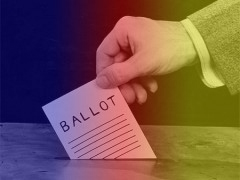We posted earlier this week on whether those who were locked out from voting in the 2010 General Election can claim for compensation under the Human Rights Act 1998 (read our post here). Liberty are asking spurned voters to contact them with a view to further legal action. But Joshua Rozenberg argues in this morning’s Law Society Gazette that those voters will face significant difficulties finding a legal remedy.
Our post concentrated on potential remedies under the Human Rights Act 1998, highlighting that the European Court of Human Rights has been reluctant to award monetary compensation in the past. The European Court has generally held that the “just satisfaction” remedy under human rights law was fulfilled by the fact that criticism from the court would lead to a change in the respective State’s voting system. As such, financial compensation to reflect the breach of the voters’ rights was not seperately awarded. It should be noted, however, that many of the recent cases involved prisoners and ex-convicts being barred from voting. We concluded that
Jack Straw, the Justice Secretary, has already said that the problem “shows a lack of foresight and preparation”, so it seems unlikely that voters will be left without a remedy, and that may come in the form of compensation probably by way of an out of court settlement… However, how much that will be is by no means clear, and it may be difficult to prove in practice that a person was prevented from voting as a direct result of administrative difficulties.
Rozenberg addresses potential remedies under the Representation of the People Act 1983, and in particular the potential that some ballots may have to be re-run:
What about trying to get the election re-run in a constituency where a lot of people were unable to vote? A dissatisfied voter may present a petition which may be tried by an election court. But there is little chance of a second poll unless the number of people who were locked out in a particular constituency is more than the winning candidate’s majority. Even then, there might need to be some evidence that the non-voters were likely to have supported the candidate who came second rather than, as seems more likely, that they would have voted in proportion to the constituency as a whole.
That is because section 23 of the Representation of the People Act 1983 says that ‘no parliamentary election shall be declared invalid by reason of any act or omission by the returning officer or any other person in breach of his official duty… if… the election was so conducted as to be substantially in accordance with the law as to elections and the act or omission did not affect its result’.
It will be clearly be difficult for spurned voters to bring claims. However, there is a strong duty imposed by human rights law on the State to conduct free and fair elections. Further, it seems that at least some of the constituencies where voters were turned away were ultimately decided by a small majority. This is unsurprising, as one would expect turnout to be higher in places where people expect the vote to be close. So, the uphill climb which spurned voters face may still lead to some kind of legal remedy.
Read more:









